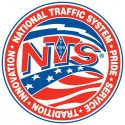No phones, no internet, no communications... When all else fails, there's amateur radio
We rely on our cell phones and internet connections to stay in touch. But what happens when these aren’t available? It could happen from a hurricane, earthquake, tornado, landslide, or a major disruption to phone or internet connectivity through equipment failure, network overload, or power loss.
When this happens, amateur radio operators can come into an affected area and set up communications. Antennas can be held up by trees, and generators can provide equipment power. Communications can be set up for across town, across the country, or around the world.
Recent calls to service
Communication standards
When sending communications into and out of an affected area, having a standardized method of communicating can help greatly. Traffic nets are one method to communicate quickly and efficiently. During the nets we move pieces of traffic (in this case messages) using a standardized format called a radiogram.
Without standards like this, an already hectic environment can be made even worse, which is why our goals at the DFW Metroplex Traffic Net include moving traffic as well as helping educate amateur radio operators interested in traffic handling.
National Traffic System
The DFW Metroplex Traffic Net is an affiliate of the American Radio Relay League (ARRL) National Traffic System (NTS). The NTS consists of amateur radio networks (nets) which move non-commercial messages as a public service.
More information about the NTS is available at the ARRL website.
You can also learn who our North Texas Officials are at the ARRL North Texas Section website.
